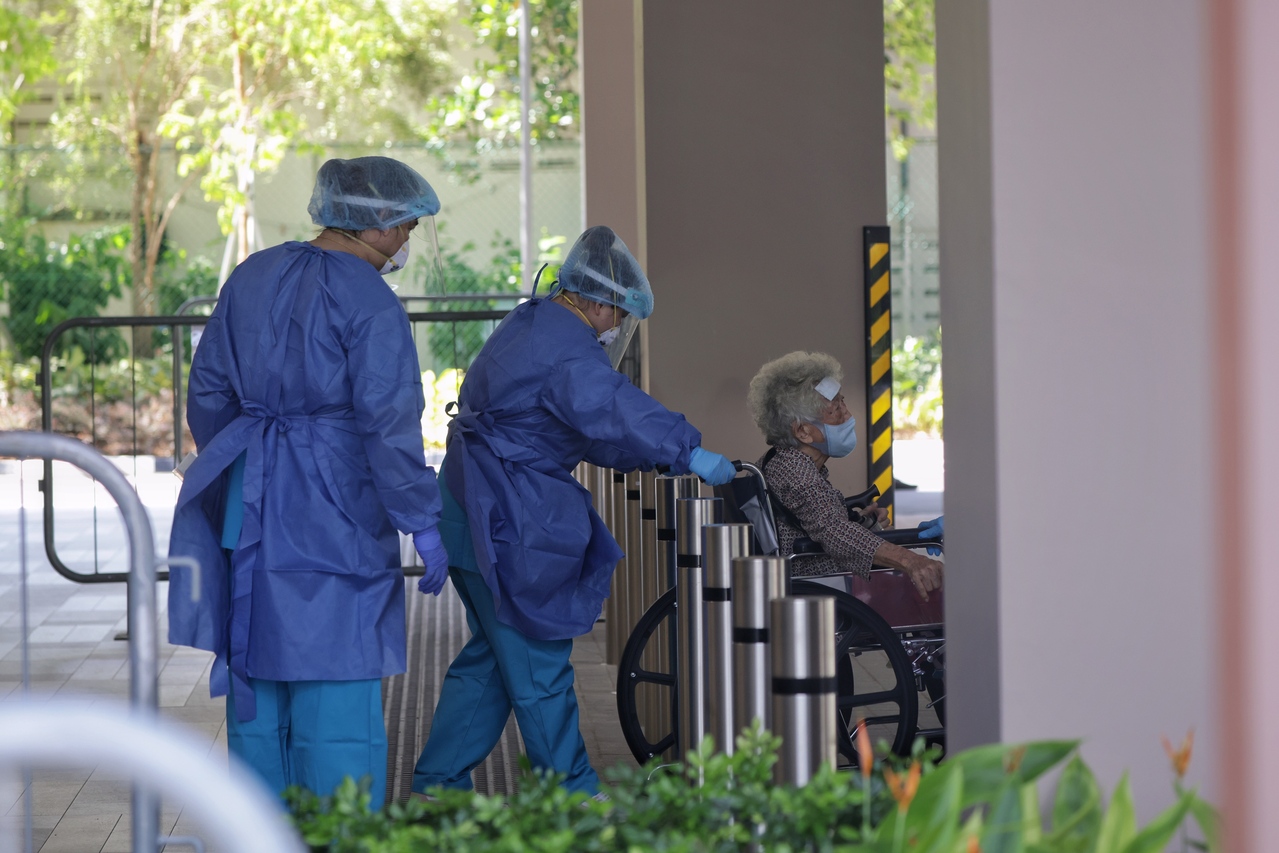Nursing homes need to be ready for next Covid-19 wave: Ong Ye Kung
Sign up now: Get ST's newsletters delivered to your inbox

Health Minister Ong Ye Kung said Singapore should expect a new Covid-19 infection wave, likely next month or August.
PHOTO: ST FILE
SINGAPORE - Singapore has so far successfully managed to prevent Covid-19 from sweeping through the country's nursing homes and attacking some of the most vulnerable groups.
This is achieved through vaccinations and good infection control measures.
The Ministry of Health (MOH) rolled out vaccinations to more than 90 per cent of eligible nursing home residents and senior care centre clients, as well as over 10,000 home-care clients.
However, there is a need to prepare the sector for the next infection wave, new variants of concern or even a new pandemic, Health Minister Ong Ye Kung said on Monday (June 13).
He was speaking at the Agency for Integrated Care's (AIC) annual Community Care Work Plan Seminar, a hybrid-format event held at Pan Pacific Singapore.
AIC was set up by the Government to coordinate eldercare services.
In the short term, Singapore should expect a new infection wave, likely next month or August, but these infection numbers matter much less than the number of people who fall severely ill and need to be hospitalised, Mr Ong said.
Every healthcare setting will need to be Covid-19-ready.
During the recent Omicron wave, nursing homes worked tirelessly with AIC to look after their infected residents on-site, under the Care@NH initiative.
Since February, more than 4,700 infected nursing home residents have been cared for on-site.
"Imagine if they had all been transferred to hospitals. It would have overwhelmed our system," Mr Ong said.
Currently, more than 80 per cent of nursing homes, including the two inpatient hospices, are under the Care@NH programme.
He added: "MOH hopes to work with the remaining homes so that by the time the next wave arrives, they are all ready.
"For residents who are at higher risk or have more complex conditions, be assured that they will still be transferred to acute hospitals."
Nursing homes must also continue to actively accept transfers of patients from acute and community hospitals.
Since April, the sector has been accepting about 300 new admissions each month from such hospitals.
Most importantly, Singapore needs to ensure that seniors get their booster shots.
For those above 60 years old and who have not received their primary series, the incidence of severe illness and death after Omicron infection is close to four in 100.
For those not boosted nine months after their primary series, the incidence rate is one in 100. For those boosted, the incidence rate drops to three in 1,000.
"Omicron is therefore a dangerous disease for seniors who are not fully vaccinated and boosted," Mr Ong said.


